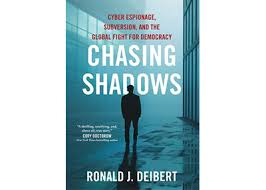Why Journalism Matters
Impressive achievements by investigative journalists in the Philippines. Revealing BBC's flawed coverage in Gaza. Fighting cyber surveillance: a losing battle?
4 minute read
The little group of Filipino investigative journalists who took on presidents—and won

Investigative journalism outlets can’t often claim that their work has brought down a president. But the Philippine Centre for Investigative Journalism can lay claim to bringing about the downfall of not one, but two, presidents in the Philippines.
Pretty good going for an organisation that started off in 1989 with seven journalists chipping in about US$18, so as to acquire one typewriter and pay one staff member.
But by July 2000 they had researched and published a major investigation carried in seven newspapers into the finances of then-President Joseph Estrada that indicated that Estrada had accumulated substantial amounts of wealth during his first two-and-a-half years in office.
66 companies
The report outlined the records of 66 companies which showed that Estrada’s wife, mistresses and children wee listed as incorporators or board members with a start-up capital of approximately US$41 million.
The article was entitled Can Estrada Explain His Wealth and was the first in a series of exposés by the PCIJ. The PCIJ is a member of the Global Investigative Journalism Network (GIJN) which recently profiled the Filipino agency on their website.
GIJN reporter Ana P. Santos takes up the story.
“The first PCIJ report initially drew little public attention. But when a major TV network aired the second report, it struck a chord of collective indignation. What began as whispers in elite circles soon turned into a deluge of story tips about mansions under construction and secret, extra-marital rendezvous with full presidential security in tow.
“PCIJ verified, traced, and documented the leads through evidence that included land registry titles linked to the president’s allies. They even uncovered an architectural blueprint of one mansion with bedrooms labeled for the president’s children.
“While on a talk show to discuss the report findings, a lawyer told PCIJ co-founder Sheila Coronel that the reports could serve as grounds for impeachment.

“By November 2000, Congress filed four articles of impeachment against Estrada. Three of them were based on PCIJ investigations. Six months after PCIJ’s first report, public outrage exploded into mass protests. Nearly half a million people flooded the streets demanding Estrada’s resignation.”
Following the mass protests the Supreme Court unanimously voted to oust Estrada. Later he was sentenced to life imprisonment for plundering the national Treasury of US$80 million.
As Santos added: “That is what it looks like when a small investigative newsroom makes a huge impact.”
And did we forget to mention that the PJIC team who led the Estrada investigation were all women?
The PCIJ was a founding member of GIJN in 2003. In its time it has covered issues ranging from politics to the environment, health and business, to women and the military.
And as Santos reports: “Their work contributed to demanding accountability from the highest public officials, such as a Supreme Court justice who was forced to resign after the PCIJ reported that an expert had found that one part of his official decision had been ghostwritten by the lawyer of one of the companies involved in the dispute.”
Generative AI
Fast forward to the notorious regime of Rodrigo Duterte when 23 journalists were killed during his term of office from 2016 to 2022.
During this period PCIJ started experimenting with generative AI to develop new formats for investigative stories. One of those employed AI to adapt The Making of Edgar Matobato, an in-depth report on a self-confessed hitman from the Duterte administration’s drug war, into an animated video.
Media coverage by the PCIJ and elsewhere in the Philippines helped generate the evidence used to arrest Duterte in March for pre-trial detention at the International Criminal Court in The Hague. . (Recently Duterte has requested interim release to an unnamed country while awaiting charges of crimes against humanity to be made against him.)
Looking back on the decades since PCIJ began as a newsroom housed in her bedroom, founder Sheila Coronel said: “When we first started PCIJ, the term ‘investigative reporting’ was not known to most of the public and was alien in most newsrooms. PCIJ succeeded in showing both readers and the press what investigative reporting is and helped train a generation of journalists in the practice.”
“Accountability remains a challenge in the Philippines,” Coronel adds, but she maintains “PCIJ will continue to nurture the hope that, while accountability may be elusive, it is possible.”
Reference
4 minute read
Declassified UK investigates the BBC’s failure to report fully on UK’s involvement in the Gaza war

The investigative unit Declassified UK has been looking into BBC coverage of the conflict in Gaza and found it wanting, especially in reporting on ongoing RAF surveillance flights over Gaza from Britain’s Akrotiri military air base in Cyprus.
In recent days DCUK interviewed a senior figure at the BBC who defended the broadcaster’s failure to investigate the RAF flights by minimising their significance.
Richard Burgess, director of news content at the BBC said: “I don’t think we should overplay the UK’s contribution to what’s happening in Israel”.
This comment follows the revelation that the RAF has flown more than 500 spy flights over Gaza since December 2023, mentioned only four times by the BBC News website according to DCUK research.
“This is despite the flights taking place on days when Israel committed major massacres of Palestinians as well as British aid workers”, writes Hamza Yusuf for the DCUK.
These flights are purported to help Israel recover hostages taken by Hamas during the October 7 2023 attacks on Israel which triggered the Gaza conflict. Intelligence from these flights—many of which lasted several hours-- has been shared with Israel, who may have used them for combat purposes.
This co-operation has continued even though Israeli Prime Minister Benjamin Netanyahu is wanted by the International Criminal Court to face war crimes charges in connection with the Gaza war.
There has been no explanation as to why there have been so many flights, especially since they have taken place on days when Israel has carried out devastating bombardments on Gaza that have killed innocent civilians including British aid workers.
Hit three times
The RAF has refused to show or publish footage taken on the day when an aid convoy was targeted by the Israelis on April 1, 2024, allegedly by mistake. The World Central Kitchen convoy was taking food to Northern Gaza when it was hit three times, killing seven aid workers and destroying their vehicles. They held Australian, British, Palestinian, Polish, and dual American-Canadian citizenships.
The UK military confirmed in a Freedom of Information (FOI) response to Declassified that “video footage of Gaza from the Shadow R1 [surveillance] flight on 1 April is held.”
However, the Ministry of Defence (MoD) claims the tape is exempt from disclosure on security grounds and hinted that its contents may relate to UK special forces or MI6.
Declassified’s small team has repeatedly investigated UK involvement in Gaza including these flights, and claims to have shot the only footage of a spy plane taking off from Cyprus as well as making Freedom of Information requests for data from the flights.
Declassified also doorstepped Britain’s defence secretary John Healey and defence chief Admiral Tony Radakin over the policy.
…Burgess, who oversees 800 BBC journalists, said: “I think it’s important that we investigate stories like that, congratulations for the work that you’ve done on it.
Many angles
“So we have reported it as you say – clearly you feel not enough… There are many angles to cover, I don’t think we should overplay the UK’s contribution to what’s happening in Israel, it’s by far and away it’s the US that are the prime [contributors]”.
When challenged further on why the BBC had not investigated the British spy flight over Gaza on the day Israel killed UK aid workers, Burgess said: “I agree with you that there are important issues to discuss but my point was that we shouldn’t – we need to see it in the context of the overall arming of Israel.”
Declassified also referenced a detailed report on BBC’s coverage of the war in Gaza undertaken by the Centre for Media Monitoring, a project of the Muslim Council of Britain which researches anti-Muslim bias in the media.
Key findings of the research:
Palestinian deaths treated as less newsworthy: Despite Gaza suffering 34x more casualties than Israel, BBC gave Israeli deaths 33 times more coverage per fatality and ran almost equal numbers of humanising victim profiles (279 Palestinians vs 201 Israelis).
Systematic language bias favouring Israelis: BBC used emotive terms 4 times more for Israeli victims, applied ‘massacre’ 18x more to Israeli casualties, and used ‘murder’ 220 times for Israelis vs once for Palestinians.
Suppression of genocide allegations: BBC presenters shut down genocide claims in over 100 documented instances whilst making zero mention of Israeli leaders’ genocidal statements, including Netanyahu’s biblical Amalek reference.
Muffling Palestinian voices: The BBC interviewed significantly fewer Palestinians than Israelis (1,085 v 2,350) on TV and radio, while BBC presenters shared the Israeli perspective 11 times more frequently than the Palestinian perspective (2,340 v 217).
In other coverage, DCUK has documented extensive military co-operation between the UK and Israel including training and arms sales.
Reference
Centre for Media Monitoring report on BBC
4 minute read
Fighting against a ‘tsunami of cyber surveillance’ threatening to invade our lives
No one will be surprised that more watchdog journalists, political activists and human rights defenders are coming under digital surveillance around the world.
Experts say the situation is getting worse, making it urgently necessary that those likely to be targeted take steps against being spied on for the sake of protecting democratic freedom for everyone.
Ranged in opposition to the threat posed by governments and commercial concerns selling those governments surveillance technology, are a handful of small NGOs dedicated to the the fight for individual privacy and public responsibility.
One of these is Citizen Lab, a small research group which specialises in forensic surveillance work at the University of Toronto in Canada.
According to Ron Deibert who heads up Citizen Lab, sophisticated sureveillance tools operated with sinister intent are on the verge of overwhelming tech platforms, government regulators and those keeping on eye on them.
Founded in 2001 as part of the Open Net Initiative, Citizen Lab set to work looking into heretofore hidden surveillance operations around the world. In 2009 it issued a report entitled "Tracking GhostNet", uncovered a suspected cyber espionage network of over 1,295 infected hosts in 103 countries between 2007 and 2009.
Many of these were considered high value targets including ministries of foreign affairs, embassies, international organisations, news media, and NGOs. This study was one of the first into the extent of cyber espionage aimed at both civil society and government organisations around the world.
A new book written by Citizen Lab founder and director Ron Deibert sets out the story of how Citizen Lab has uncovered an international espionage industry that has boomed over the past 15 years and how numerous government agencies have used the tools on offer to secretly target journalists, activists and dissidents.
The book is called “Chasing Shadows: Cyber Espionage, Subversion, and the Global Fight for Democracy.” Citizen Lab and the new book feature in a recent article by reporter Rowan Philp written for the Global Investigative Journalism Network.(GIJN)
Comparing the book to a spy thriller Philp writes: “The accounts are stunning. Like the night the team was analyzing a live computer log file, and realised they were actually witnessing a salesperson’s live demo of Cyberbit spyware to the Uzbek National Security Service. Or how a typo helped them discover that the confiscated phone of the wife of Washington Post journalist Jamal Khashoggi had been manually infected with Pegasus spyware, at precisely 10:18 am on April 18, 2018 — months before his state-sponsored murder.
“ Or how one spy firm made the mistake of trying to covertly entrap a Citizen Lab cyber research expert — John Scott Railton — and how Railton then organised a sting operation with the Associated Press to trap the spy at a New York restaurant.”
In the face of the overwhelming threat there are only two other significant civil society defenders in addition to Citizen Lab—Amnesty International Security Lab and Access Now— who can usually only score individual victories rather than turning back the tide.
In a recent interview Ron Deibert explained the situation that journalists face.

“One big takeaway is that journalists are in the crosshairs of an out-of-control surveillance industry that governments have access to, and they are definitely targets and victims. There are a plethora of surveillance capabilities now from the private sector in the hands of government security agencies to put journalists under surveillance.
“I included a quotation in my book from a New York Times Middle East bureau chief, Ben Hubbard, after we discovered his phone had been hacked with a zero-click version of Pegasus — with no email attachment to click on or suspicious text message. It just infected his phone. He said: ‘It was like being robbed by a ghost’.
“Second, that their sources and the family members of sources are also at risk. When your phone is compromised, that contains contacts, notes, recordings, photos, and videos to which now adversaries can easily have access.”
Deibert is also concerned with the ‘disturbing convergence’ of surveillance capitalism and privacy invasions via social media.
“Governments [are] able to tap into that directly, or with the help of mercenary companies made up of ex-intelligence agents giving them a whole toolkit of services to hack into devices or track targets.
“This market didn’t exist 10 years ago, and this is highly dangerous for investigative journalists and human rights defenders. I do believe it’s contributing to the spread of authoritarianism, because those tools are used to undercut systems of accountability. There is also a chilling effect, and we heard from a lot of people who are retreating from their work because of the threat.”
On the positive side of the ledger are initiatives like that taken by the Biden regime under a 2023 executive order restricting US federal agencies from doing business with surveillance firms implicated in human rights abuses, but Deibert describes these as ‘minor victories’ in the ‘overall tsunami of covert surveillance’.
In a chilling comment Deibert adds: “Also, there’s the huge volume of resources being put into the US mass deportation regime there, which involves, at least in part, using some of the same technologies we’re talking about.”
Reference
It’s free to subscribe and you can cancel anytime, so give it a try!
Contact us on greatjournalismwjm@gmail.com
Follow us on Facebook and Twitter
facebook.com/whyjournalism matters
X-twitter @JournalismWhy








Hi Ted, been a long time! Can we catch up? Potentially being reunited with Alcala De Henares but need your help for a documentary! All best wishes